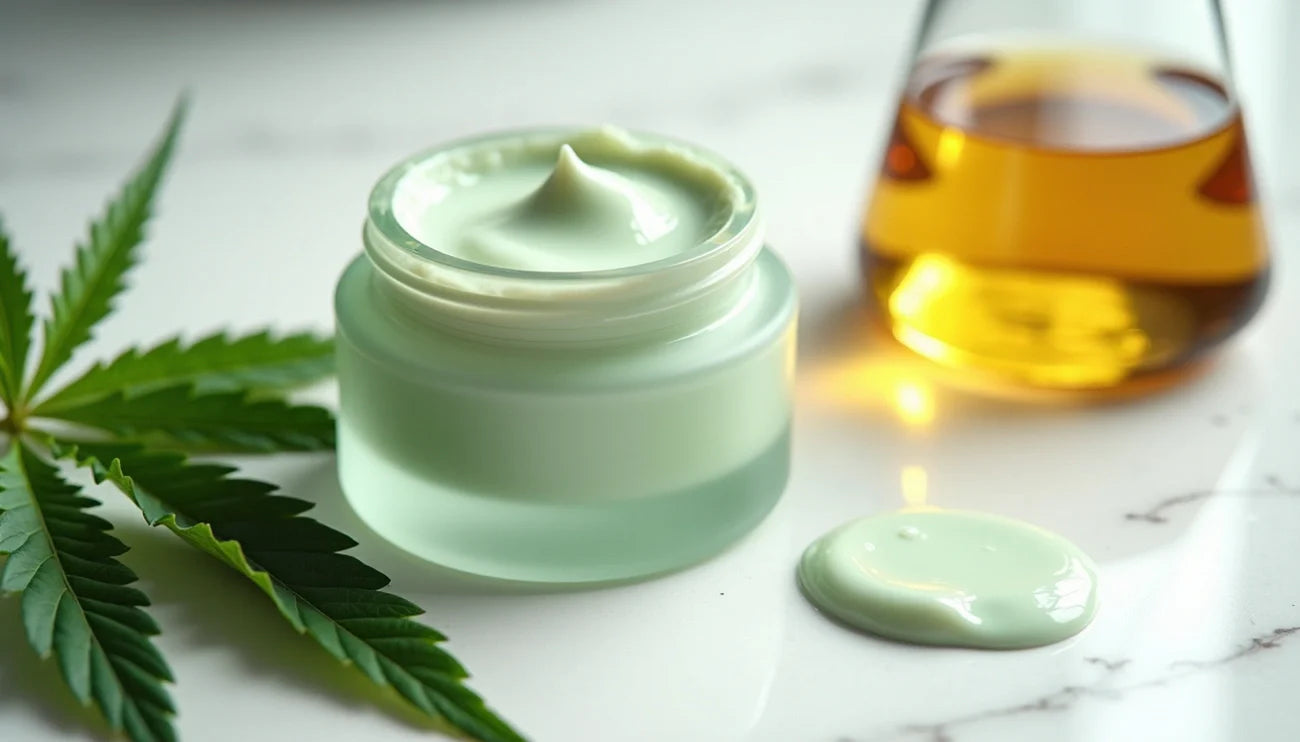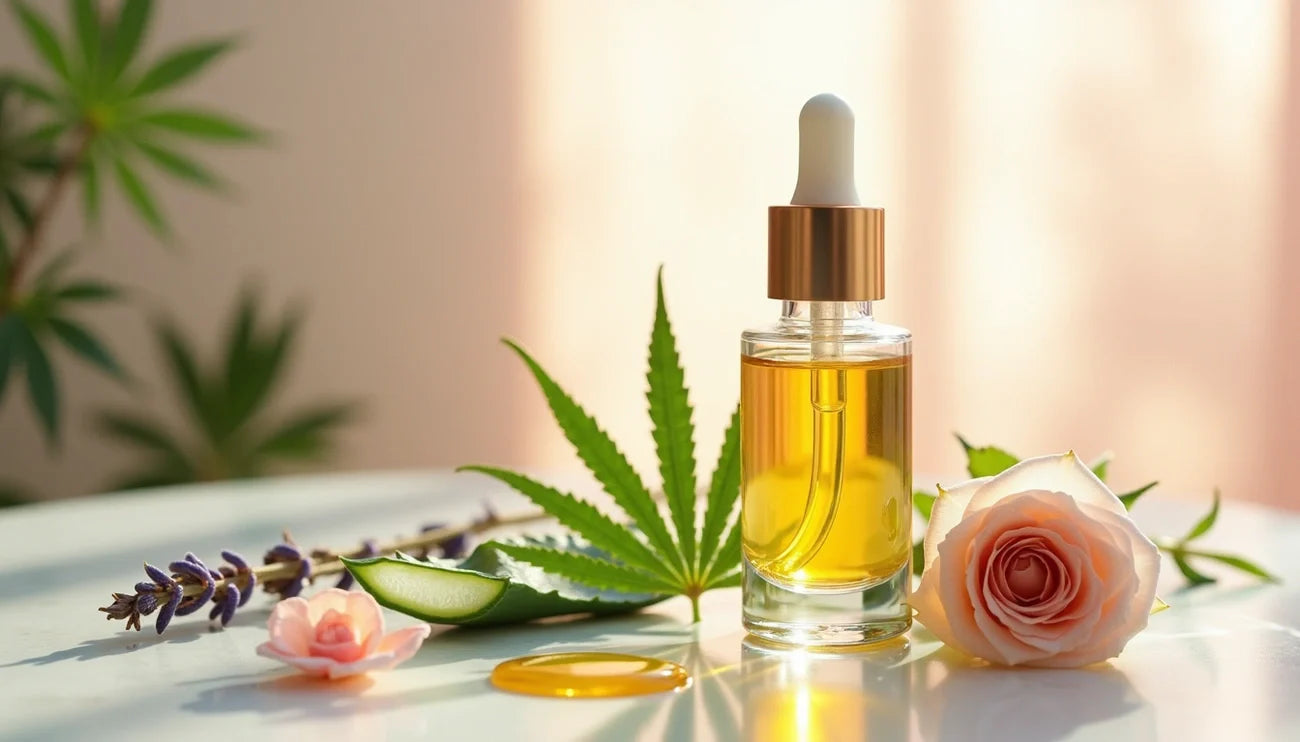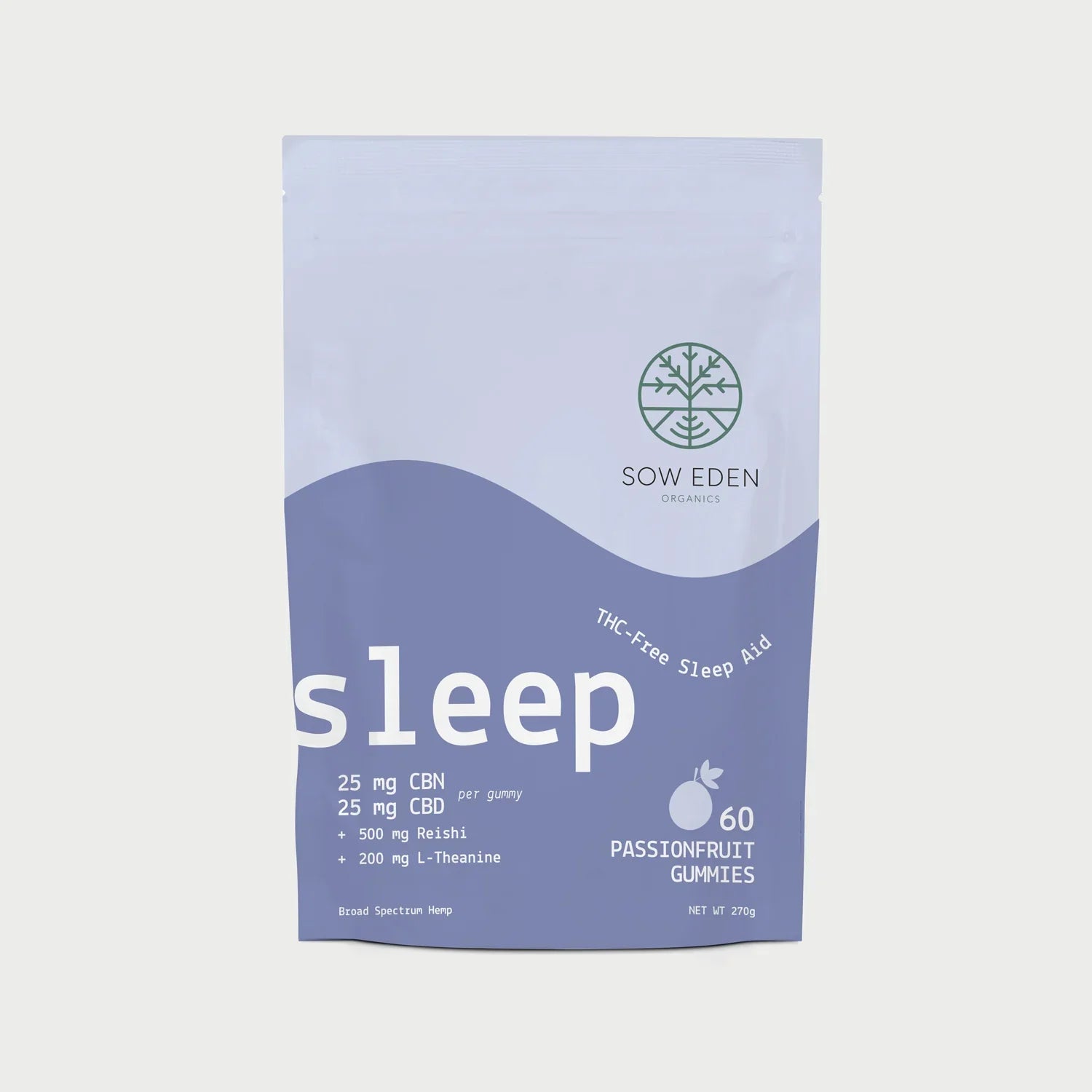Why CBD for Anxiety is Capturing Attention Worldwide
CBD for anxiety has emerged as one of the most researched and discussed natural wellness approaches in recent years. Here's what you need to know:
Quick Facts: - 31.1% of U.S. adults experience an anxiety disorder at some point in their lives - 41% of people with anxiety go untreated, creating demand for alternatives - CBD (cannabidiol) is a non-intoxicating compound from hemp that may help ease anxiety symptoms - Studies show doses of 25-600mg daily have shown promise in clinical trials - Full-spectrum products may work better than isolated CBD at lower doses (~30mg vs 300mg daily)
We're living through particularly anxious times. Whether it's work pressure, global uncertainty, or daily stress, millions of people are searching for natural ways to find calm without the side effects that often come with traditional medications.
The research is promising but still developing. Recent studies suggest CBD may work through multiple pathways in the brain - including serotonin receptors and the endocannabinoid system - to help regulate our stress response. One 2022 clinical trial found that 100% of participants with moderate-to-severe anxiety achieved meaningful symptom reduction within three weeks using a full-spectrum, high-CBD product.
I'm Jacob Dunn, CEO of Sow Eden Organics, where I've spent years researching and developing holistic CBD for anxiety solutions that prioritize quality and transparency. Through my work in sustainable wellness, I've seen how the right approach to cannabinoid therapy can complement a healthy lifestyle for those seeking natural stress support.
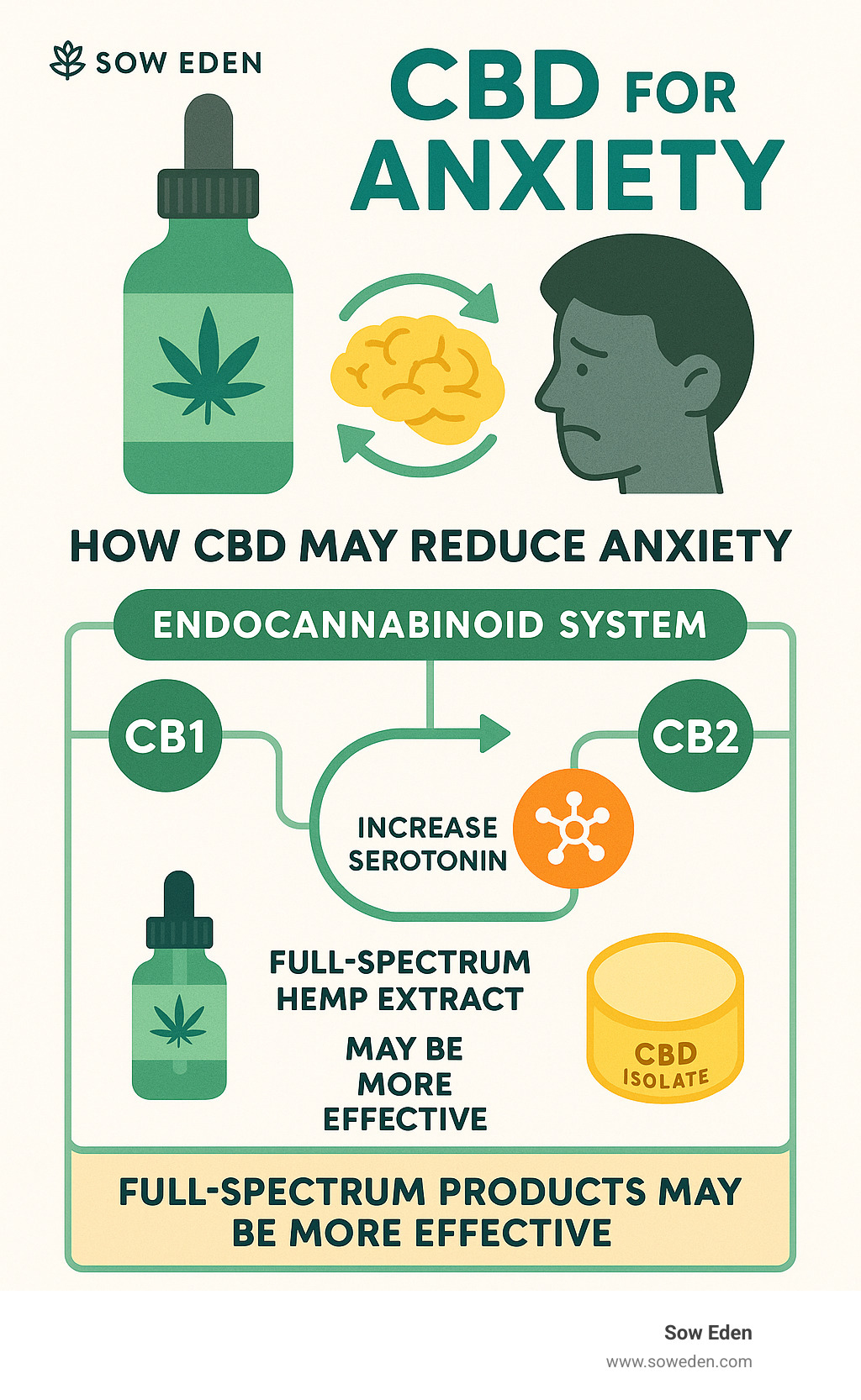
Cbd for anxiety vocabulary: - cbd benefits for heart - hemp oil benefits - benefits of hemp oil for hair
Understanding the Basics: CBD, THC, and Anxiety
Let's start with the fundamentals. If you're exploring CBD for anxiety, you've probably heard a lot of confusing terms thrown around. Don't worry - it's simpler than it sounds.
Cannabidiol (CBD) is just one of over 100 natural compounds found in cannabis plants. But here's what makes it special: it's completely different from the compound that causes a "high." That's THC (delta-9-tetrahydrocannabinol), and while both come from the same plant family, they work in totally different ways in your body.
Think of your endocannabinoid system as your body's internal maintenance crew. This network of receptors and natural chemicals helps keep your mood, stress response, sleep patterns, and immune function in balance. When life gets overwhelming, this system can get thrown off balance.
The difference between hemp and marijuana is actually pretty straightforward. Both are cannabis plants, but hemp contains less than 0.3% THC by legal definition. This means hemp-derived products can potentially offer wellness benefits without making you feel intoxicated or worried about legal issues.
What Sets CBD Apart from THC?
This is where things get really interesting for anyone considering CBD for anxiety. Unlike THC, CBD is non-intoxicating - meaning it won't make you feel "high," cloudy, or out of control. In fact, research suggests CBD might actually help balance out some of THC's more anxiety-provoking effects.
When we talk about legal hemp products, we're referring to cannabis containing less than 0.3% THC. This tiny amount means you can explore potential wellness benefits while staying completely clear-headed and functional throughout your day.
Why So Many People Feel Anxious—and Seek Alternatives
The numbers tell a sobering story. Roughly 34% of adults will experience an anxiety disorder at some point in their lives. Even more concerning? About 41% of people with anxiety never receive treatment, creating a huge gap in care.
Current prescription options work for only 40-60% of patients, and many come with side effects like drowsiness, weight gain, or other issues that can impact quality of life. No wonder so many people are looking for alternatives.
This unmet treatment need has led millions to explore natural approaches, including CBD for anxiety. People want options that work with their bodies, not against them - approaches that support their overall wellness without adding new problems to solve.
CBD for Anxiety: What Science Says
The research on CBD for anxiety is genuinely exciting, and while we're still learning about its full potential, the early results are quite promising. Let me walk you through what scientists have found so far.
A groundbreaking 2022 open-label clinical trial caught the attention of researchers worldwide. Every single participant - that's 100% of patients with moderate-to-severe anxiety - achieved meaningful symptom reduction within three weeks of starting a full-spectrum, high-CBD product. Even more impressive? Most people felt better after just one week.
Here's what really surprised the research community: this trial worked at much lower doses than previous studies. Participants needed only around 30 mg per day to see results, compared to earlier trials using isolated CBD that required 300 mg daily or more. This suggests that full-spectrum products - which contain multiple cannabinoids working together - may offer significant advantages over single-compound approaches.
The numbers from larger studies are equally encouraging. In a randomized trial involving 300 people, CBD-dominant cannabis products helped with tension and anxiety relief while showing limited negative effects. Survey data reveals that more than 1 in 6 adults who use CBD are specifically turning to it for mood support.
One fascinating aspect of CBD for anxiety research is the bell-shaped dose response curve. This means moderate doses tend to work best, while very high doses may actually be less effective or even counterproductive.
The scientific research on CBD efficacy continues to expand, with researchers exploring optimal dosing, timing, and product formulations.
CBD for Anxiety in Generalized & Social Anxiety Disorders
Generalized Anxiety Disorder (GAD) and Social Anxiety Disorder (SAD) have become focal points for CBD for anxiety research, and the results are particularly encouraging for people dealing with these challenging conditions.
In studies involving teenagers with social anxiety disorder, participants experienced significant anxiety reduction using 300 mg daily of CBD isolate. While this is a higher dose than some full-spectrum studies, it still demonstrated clear benefits for this specific population.
The "public speaking model" has become a gold standard in anxiety research. Researchers ask people with social anxiety to give a speech or presentation - typically a nightmare scenario for someone with SAD. But when participants took CBD beforehand (usually 400-600 mg single doses), their anxiety levels dropped to match those of people without anxiety disorders.
Neuroimaging studies help us understand why this might work. Brain scans show that CBD appears to influence key regions involved in anxiety processing, particularly the amygdala (your brain's alarm system) and the prefrontal cortex (which helps regulate emotional responses).
CBD for Anxiety and Panic, PTSD, OCD & More
The potential applications for CBD for anxiety extend well beyond generalized and social anxiety. Preclinical studies - mostly in animal models so far - suggest promising applications for several related conditions.
For PTSD, research indicates CBD may help with fear extinction and prevent traumatic memories from becoming re-traumatizing when recalled. OCD research in animal models shows reduced compulsive behaviors with CBD treatment, though human studies are still needed.
Early panic disorder studies suggest CBD may help reduce panic-like responses, while specific phobia research indicates potential benefits for fear-based reactions.
More than a dozen studies are currently underway to test CBD's effects on various anxiety disorders. This expanding research pipeline means we'll have much clearer answers about optimal applications and dosing in the coming years.
How CBD May Ease Anxiety—Mechanisms & Optimal Use
The fascinating thing about CBD for anxiety is that it doesn't work through just one pathway in your body. Instead, it's like a gentle conductor orchestrating multiple systems to help you find your calm.
Your body has something called the endocannabinoid system - think of it as your internal stress management team. When life gets overwhelming, CBD for anxiety may help this system do its job better.
The science gets pretty interesting here. CBD appears to interact with 5-HT1A receptors, which are part of your serotonin system. These same pathways that many traditional anxiety medications target, but CBD seems to work more gently. It also affects something called FAAH, an enzyme that breaks down your body's natural "feel-good" molecules. By slowing this breakdown, CBD might help you maintain those calm feelings longer.
There's also the HPA axis - your body's main stress response system. When you're anxious, this system can get stuck in "on" mode. CBD may help it reset and find balance again.
CBD seems to follow what researchers call a "bell-shaped dose response." This means moderate doses often work better than really high ones. It's not always a case of "more is better."
The entourage effect is another key piece of the puzzle. Full-spectrum products that contain CBD alongside other hemp compounds often work better than isolated CBD alone. That's why the recent 2022 study found success with around 30mg of full-spectrum CBD daily, while studies using isolated CBD needed 300mg or more.
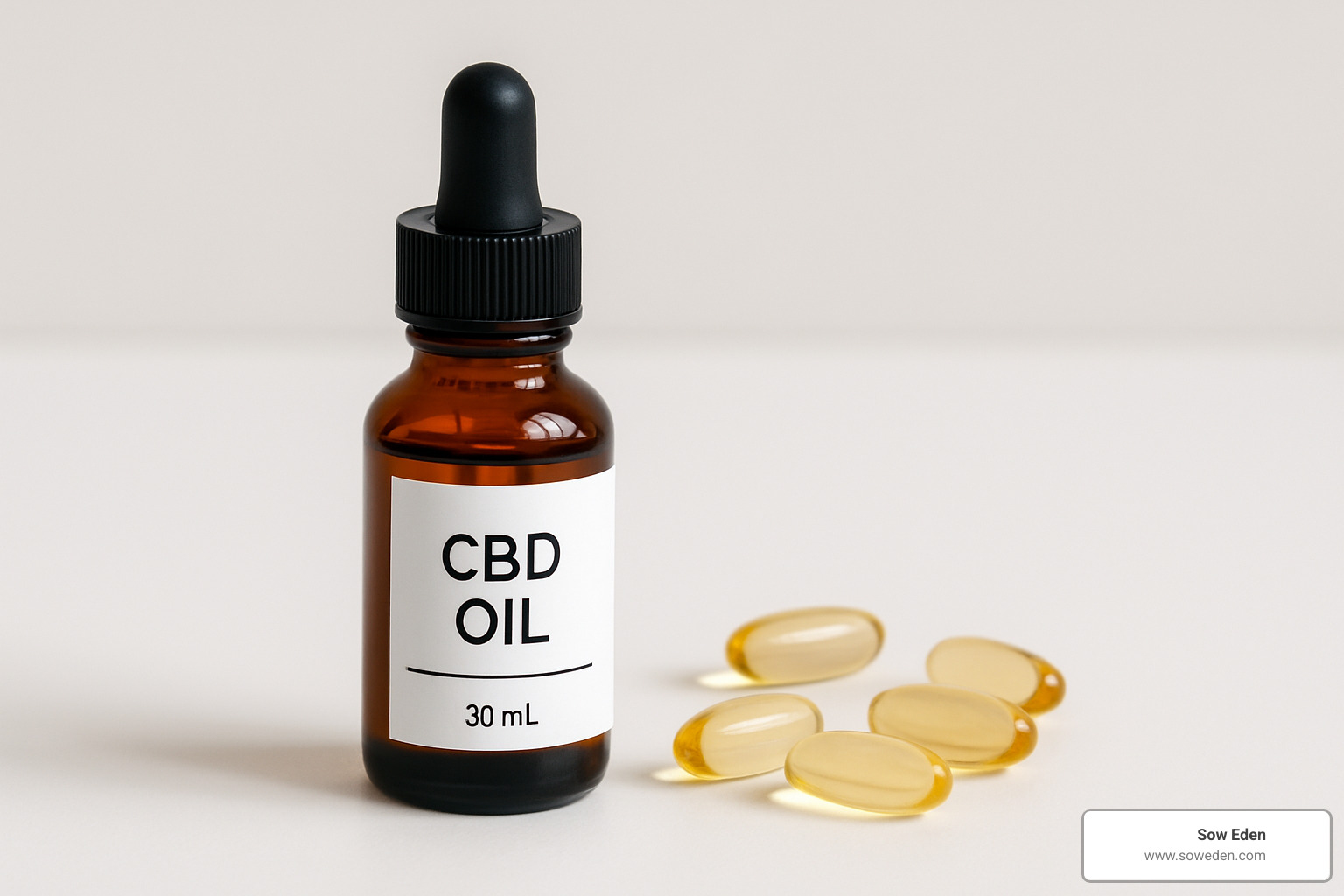
When it comes to timing, different methods work at different speeds. Sublingual oils (drops under your tongue) typically start working within 15-45 minutes. Capsules and edibles take longer - anywhere from 30 minutes to 2 hours - but the effects tend to last longer too.
Finding Your Starting Dose of CBD for Anxiety
Starting your CBD for anxiety journey can feel overwhelming, but it doesn't have to be. The golden rule is simple: start low and go slow.
Most people find success beginning with just 5-10mg daily. Yes, that's much lower than you might expect! Give your body a few days to adjust, then increase by 5mg increments until you find what feels right.
The research shows a pretty wide effective range - anywhere from 25mg to 600mg daily - but full-spectrum products often work beautifully at the lower end of this range. Many people find their sweet spot around 25-50mg daily when using quality full-spectrum products.
Some folks prefer taking their dose at the same time each day to maintain steady levels. Others find it works better as-needed before stressful situations. Your body will tell you what works best.
Choosing a Product Format
The format you choose for CBD for anxiety can make a real difference in your experience.
Oils and tinctures are often the go-to choice because they give you precise control over your dose. Hold them under your tongue for 30-60 seconds before swallowing, and you'll typically feel effects within 15-45 minutes.
Softgels and capsules take the guesswork out of dosing. Each one contains exactly the same amount, and the effects tend to last longer than oils. The trade-off is they take longer to kick in since they have to go through your digestive system first.
Gummies and edibles are convenient and discreet, but the dosing can be trickier since you can't easily adjust by half a gummy, and they also take longer to work.
Maximizing the Entourage Effect
This is where things get really exciting. The entourage effect suggests that hemp compounds work better as a team than flying solo.
Terpenes are aromatic compounds that give plants their distinctive scents - and they may do much more than smell nice. Linalool, which you'll also find in lavender, may have naturally calming properties. Limonene from citrus peels might help lift your mood. Myrcene tends to have more relaxing effects.
Minor cannabinoids like CBG-A are showing promise in early research for supporting overall wellness. When combined with CBD-A, they may work synergistically to provide better results than either compound alone.
At Sow Eden, we've taken this concept further by combining CBD-A and CBG-A with natural botanicals like Ginger Root and Lemon Peel. These additions aren't just for flavor - they're chosen specifically to improve immune support and overall wellness as part of a holistic approach.
Staying Safe: Side Effects, Drug Interactions & Legal Landscape
When exploring CBD for anxiety, understanding the safety picture helps you make informed decisions. The good news is that research shows CBD has a relatively gentle side effect profile, especially compared to many traditional anxiety medications.
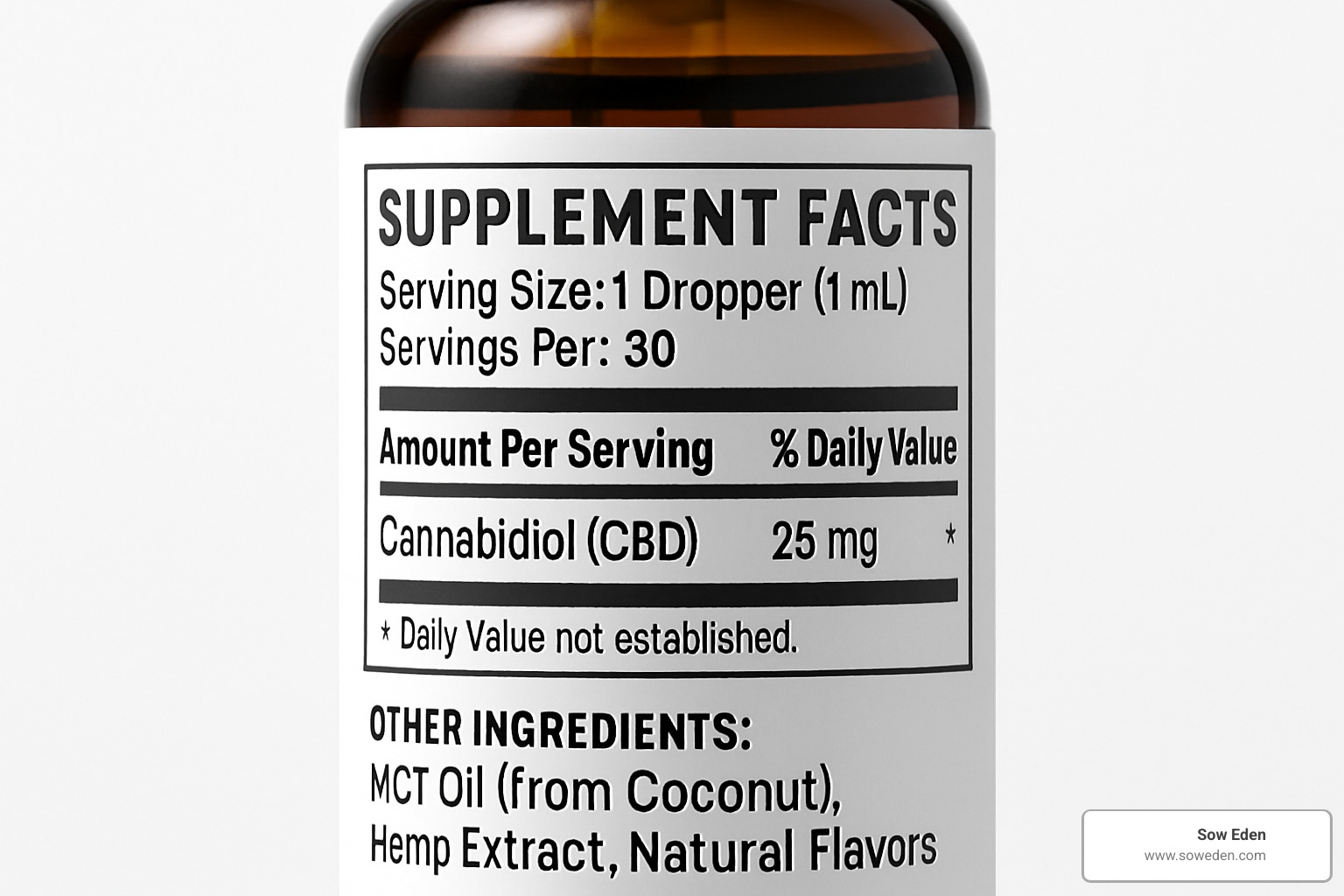
Most people tolerate CBD well, but some experience mild drowsiness or fatigue, especially when first starting or with higher doses. Dry mouth is another common side effect - keeping water handy usually solves this. Some people notice changes in appetite or occasional digestive upset, particularly with very high doses.
These side effects are typically mild and often fade as your body adjusts. The more serious consideration is drug interactions. CBD affects liver enzymes called CYP450, which process many medications. This means CBD could potentially change how your body handles blood thinners, seizure medications, some antidepressants, or benzodiazepines.
Think of your liver like a busy highway - CBD can slow down traffic, causing other medications to "back up" in your system. This could make them more potent or last longer than intended. It's not necessarily dangerous, but it requires professional guidance.
The legal landscape around CBD for anxiety has become much clearer since 2018. Hemp-derived CBD containing less than 0.3% THC is federally legal thanks to the Farm Bill. However, state laws can vary, and the FDA doesn't regulate CBD products like prescription medications - meaning quality and consistency can vary between brands.
Special populations need extra caution. Pregnant and nursing women should avoid CBD products since we don't have safety data for developing babies. There's also limited research on CBD use in children or elderly populations with multiple medications.
Talking to Your Healthcare Provider About CBD
Having an honest conversation with your healthcare provider about CBD for anxiety doesn't have to be awkward. Many doctors are becoming more open to discussing natural approaches as research grows.
Start by being honest about your current anxiety symptoms and what treatments you've tried. Share any compelling research you've found - doctors appreciate patients who come prepared with actual studies rather than just testimonials from social media.
The most important part is reviewing your current medications for potential interactions. Your doctor can help you understand if CBD might affect anything you're already taking. They might suggest adjusting timing, monitoring certain lab values, or starting with lower doses.
Set realistic expectations together. CBD isn't a magic cure for anxiety, and it doesn't work for everyone. Your doctor can help you plan for monitoring - tracking your anxiety symptoms, noting any side effects, and deciding how long to try CBD before evaluating whether it's helping.
Long-Term Use & Research Gaps
One of the biggest questions about CBD for anxiety is what happens with long-term use. Current research is mostly limited to studies lasting 12 weeks or less, so we're still learning about extended use.
The encouraging news is that CBD doesn't appear to cause tolerance or dependence like some anxiety medications. In fact, some people find they need lower doses over time as their endocannabinoid system becomes more balanced.
However, we still have significant research gaps. We need more data on long-term safety beyond a few months, optimal dosing for different types of anxiety disorders, and how CBD affects diverse populations.
The FDA's stance reflects this cautious optimism. They've approved one CBD medication (Epidiolex) for certain types of epilepsy, proving CBD can be an effective medicine. But they haven't approved CBD for anxiety yet - they're still studying its safety and effectiveness profile for mental health applications.
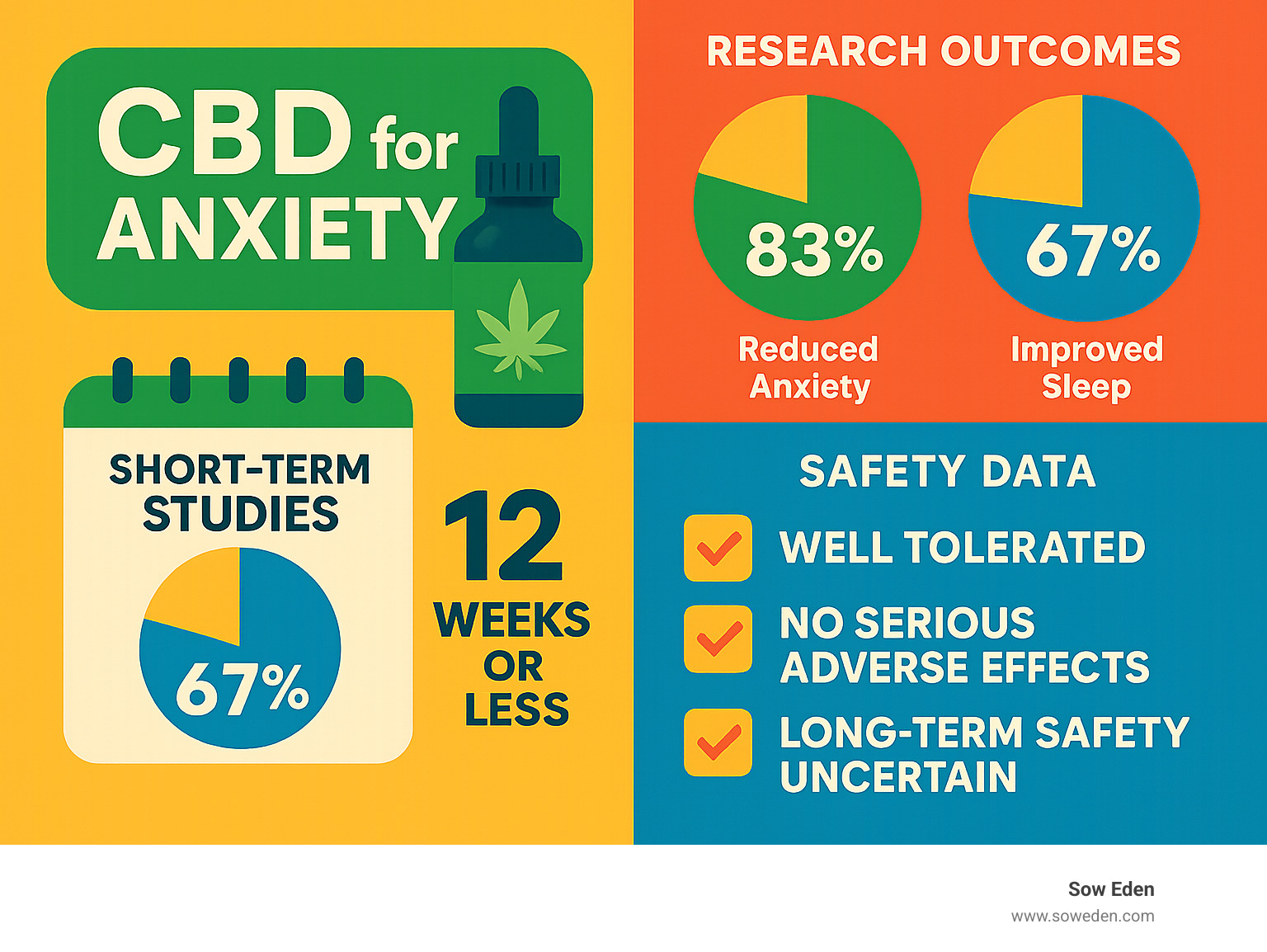
Frequently Asked Questions about CBD & Anxiety
Let's address the most common questions I hear from people considering CBD for anxiety. These answers come from real research and years of working with customers exploring natural wellness options.
Does CBD work immediately or over time?
The answer is both, depending on what you're looking for and how you take it. If you use a sublingual oil and hold it under your tongue, you might notice effects within 15-45 minutes. Capsules take longer - usually 1-2 hours - because they have to go through your digestive system first.
But here's what's really interesting about CBD for anxiety: while you might feel some immediate calm, the most meaningful benefits often build over time. That groundbreaking 2022 study I mentioned earlier found that most people achieved significant anxiety relief within one week of consistent use, with everyone in the study showing improvement by week three.
Think of it like exercise or meditation - you might feel good after one session, but the real change happens when you make it part of your routine. Many customers tell us they noticed subtle changes in their stress response after a few days, then realized after a few weeks that they were handling daily pressures much better overall.
For specific anxiety-provoking situations - like public speaking or a stressful meeting - some people find taking CBD 30-60 minutes beforehand helpful. But for general anxiety management, consistent daily use tends to work best.
Can I take CBD with my current anxiety medication?
This is hands-down the most important question to discuss with your healthcare provider, not just read about online. CBD for anxiety can interact with various medications because it affects liver enzymes that help your body process drugs.
Here's what you need to know: never stop taking prescribed anxiety medications without medical supervision. Some medications, especially benzodiazepines, can be dangerous to stop suddenly. Your doctor prescribed them for a reason, and any changes need professional oversight.
That said, many healthcare providers are becoming more open to discussing CBD as a complementary approach. The key is having an honest conversation about your current medications, your anxiety symptoms, and your interest in exploring natural options.
Come prepared with questions and research. Share what you've learned about CBD, but also listen to your provider's concerns. They might want to monitor your liver function or adjust medication timing if you decide to try CBD together.
Will CBD make me feel "high" or show up on a drug test?
Let me put your mind at ease about feeling "high" - quality hemp-derived CBD for anxiety products shouldn't cause any intoxication. We're talking about products with less than 0.3% THC, which is nowhere near enough to cause psychoactive effects.
In fact, CBD might help you feel more like yourself rather than different. Instead of feeling altered or impaired, many people describe feeling more balanced, focused, or simply less on edge.
Drug testing is a bit more complex, though. Most workplace drug tests look for THC metabolites, not CBD itself. Full-spectrum CBD products do contain those tiny amounts of THC, and while it's rare, regular use could theoretically accumulate enough to trigger a positive test.
If drug testing is a concern for your job or other reasons, you have options. Broad-spectrum products have the THC completely removed while keeping other beneficial compounds. CBD isolates contain only pure CBD with no other cannabinoids.
The trade-off is that these THC-free options might not work as well due to losing the entourage effect. It's about weighing your priorities - the potential benefits of full-spectrum products versus the peace of mind of THC-free options.
Conclusion
After diving deep into the research on CBD for anxiety, one thing becomes clear: we're witnessing something genuinely exciting in natural wellness. The science is still unfolding, but the early results are encouraging enough to make anyone dealing with anxiety take notice.
Think about it - in that groundbreaking 2022 clinical trial, every single participant experienced meaningful anxiety reduction within just three weeks. That's not just promising; it's remarkable. And with ongoing studies exploring everything from optimal dosing to specific anxiety disorders, we're only scratching the surface of what CBD for anxiety might offer.
At Sow Eden, we've built our approach around maximizing these natural benefits. Our botanically improved CBD-A and CBG-A blends aren't just about following trends - they're about creating products that work with your body's natural systems. By combining premium hemp compounds with thoughtfully chosen botanicals like Ginger Root and Lemon Peel, we're offering something that goes beyond basic CBD.
But here's the thing: CBD for anxiety isn't a silver bullet, and we'd never claim it is. Real wellness happens when you take care of yourself from multiple angles. That might mean regular movement that gets your heart pumping, stress management techniques that actually fit into your busy life, quality sleep that leaves you feeling refreshed, and nutritious food that fuels your body properly.
Sometimes it also means reaching out for professional support when you need it. There's absolutely no shame in working with a counselor or therapist - in fact, it often makes everything else work better.
The most important thing to remember? You're not alone in this. Anxiety affects millions of people, and there are more options available today than ever before. Whether you explore CBD, work with traditional treatments, or find a combination that works for you, the key is partnering with healthcare professionals who understand your unique situation.
Everyone's anxiety journey looks different. What brings relief to your friend might not work for you, and that's completely normal. Finding your path often takes time, patience, and a willingness to try different approaches. Be gentle with yourself through the process.
If you're curious about our holistic approach to wellness, you can learn more about our wellness tinctures and how we're working to support people on their wellness journeys.
This article is for educational purposes only and is not intended to diagnose, treat, cure, or prevent any disease. Always consult with a qualified healthcare provider before starting any new wellness regimen, especially if you have existing health conditions or take medications.


